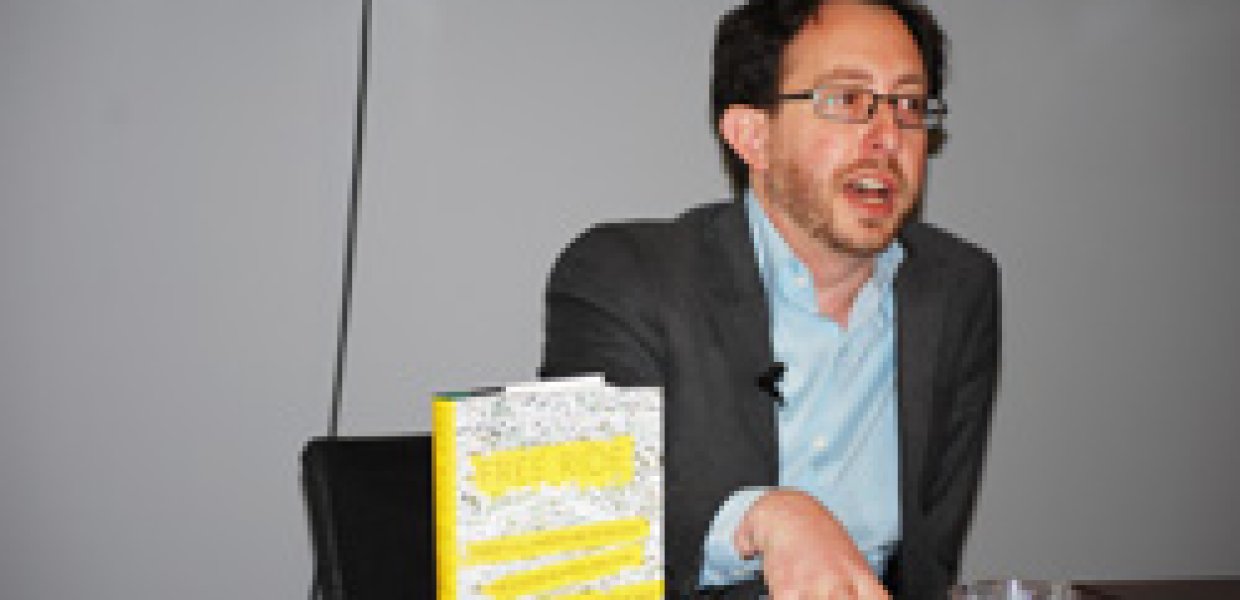By Amelia Brodka Student Writer  USC Annenberg's Nov. 8 Media, Economics and Entrepreneurship event featured a talk with former executive editor of Billboard Robert Levine. Levine discussed topics from his recently published book Free Ride: How Digital Parasites Are Destroying the Culture Business and How the Culture Business Can Fight Back. In his talk, Levine challenged today's "conventional wisdom" of news, which he said insists that the future of journalism is one where all news content will be available for free on the Internet and paid for by Internet advertising. Levine feels that such journalism models are "great for innovation but not so good for journalism." He said that the vision of a future of free citizen-generated journalism is profoundly democratic, but too idealistic. "There is very little evidence that this will lead to the kind of journalism we would want," he said. Levine said that if newspapers want quality journalism, they still have to pay their journalists. Although the Internet has alleviated the the distribution cost, the process of writing is still the same, he said. However, online business models such as that of Google are pushing the idea that since journalism is now free to distribute it should be cheaper to make. He said Google claimed it created Google News because it's important for news to get a range of perspectives and opinions out on the Web. "If you believe this," said Levine, "please leave journalism immediately." He said Google uses news written by other reporters for free because it gives them more space to sell ads. "As the biggest seller of advertising, you need as much space as you can get," he said. In the traditional world, advertising was limited by space. Today, the Internet has made the supply for ad space infinite but the demand hasn't changed much since 1955, Levine said. Therefore, newspaper executives are ignoring the laws of supply and demand when they think that ads in the online versions of their paper will make up for what they are losing on print ads. "There is this idea that the Internet will save all businesses if you embrace the Internet," but Levine thinks that this "faith-based business model" is "not a vision of journalism without newspapers, it's a vision of journalism without journalists." Levine admitted that he's not 100 percent sure what will work, but it's clear what won't work. "People should charge for their writing," Levine said. He suggested a model comparable to the one used by cable companies in which consumers pay a flat fee for a large amount of content. "You can have great journalism without a printed paper but I would argue you still need a great journalist," Levine said. "New media doesn't really correct for that."
USC Annenberg's Nov. 8 Media, Economics and Entrepreneurship event featured a talk with former executive editor of Billboard Robert Levine. Levine discussed topics from his recently published book Free Ride: How Digital Parasites Are Destroying the Culture Business and How the Culture Business Can Fight Back. In his talk, Levine challenged today's "conventional wisdom" of news, which he said insists that the future of journalism is one where all news content will be available for free on the Internet and paid for by Internet advertising. Levine feels that such journalism models are "great for innovation but not so good for journalism." He said that the vision of a future of free citizen-generated journalism is profoundly democratic, but too idealistic. "There is very little evidence that this will lead to the kind of journalism we would want," he said. Levine said that if newspapers want quality journalism, they still have to pay their journalists. Although the Internet has alleviated the the distribution cost, the process of writing is still the same, he said. However, online business models such as that of Google are pushing the idea that since journalism is now free to distribute it should be cheaper to make. He said Google claimed it created Google News because it's important for news to get a range of perspectives and opinions out on the Web. "If you believe this," said Levine, "please leave journalism immediately." He said Google uses news written by other reporters for free because it gives them more space to sell ads. "As the biggest seller of advertising, you need as much space as you can get," he said. In the traditional world, advertising was limited by space. Today, the Internet has made the supply for ad space infinite but the demand hasn't changed much since 1955, Levine said. Therefore, newspaper executives are ignoring the laws of supply and demand when they think that ads in the online versions of their paper will make up for what they are losing on print ads. "There is this idea that the Internet will save all businesses if you embrace the Internet," but Levine thinks that this "faith-based business model" is "not a vision of journalism without newspapers, it's a vision of journalism without journalists." Levine admitted that he's not 100 percent sure what will work, but it's clear what won't work. "People should charge for their writing," Levine said. He suggested a model comparable to the one used by cable companies in which consumers pay a flat fee for a large amount of content. "You can have great journalism without a printed paper but I would argue you still need a great journalist," Levine said. "New media doesn't really correct for that."
Author and former Billboard exec Levine discusses changing news business models
November 9, 2011
Updated May 2, 2023 10:12 a.m.









